The Research Journal : 2017's most read articles!
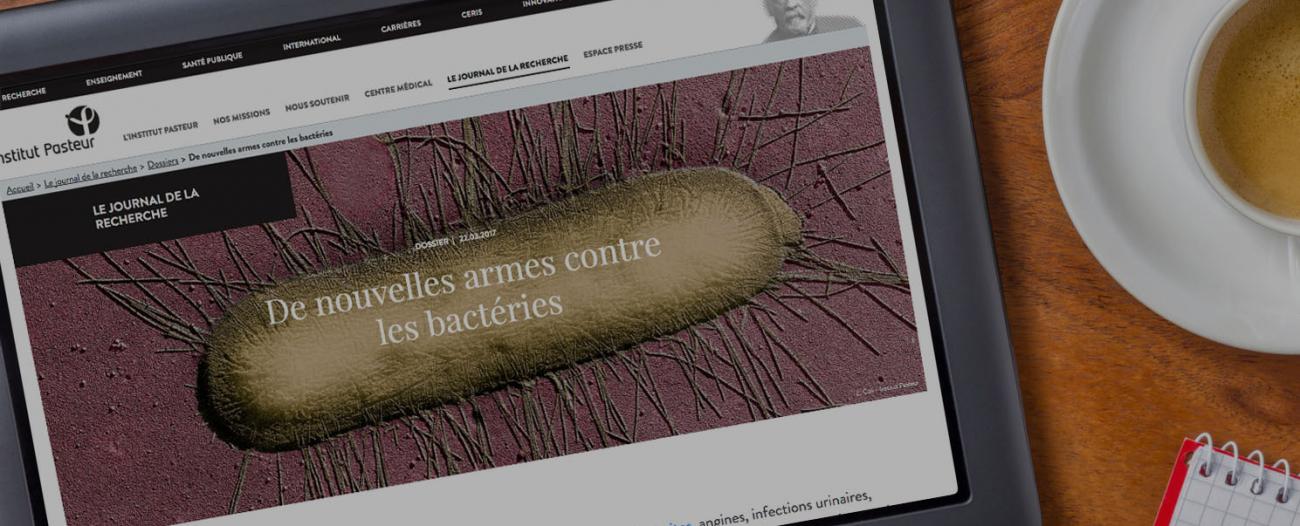
The Research Journal is celebrating its first year of existence, an opportunity to share with you the articles that were read the most over the past year.
Antibiotic resistance, disease, vector insects, and cancers
New weapons to fight bacteria
Pneumonia, bronchitis, ear infections, meningitis, tonsillitis, urinary tract infections, whitlow, septicemia, etc. Many infections are caused by bacteria. Bacterial infections have affected us all, and will continue to do so. Our doctors respond by treating such infections with antibiotics. These standard "weapons" against bacteria have saved millions of lives, and will save millions more. But abusive use in humans and animals has led to the accelerated emergence of bacteria that are resistant to these drugs. The efficacy of antibiotics is now seriously under threat. It has become crucially urgent to find new antibiotics, or to develop alternatives for fighting pathogenic bacteria.
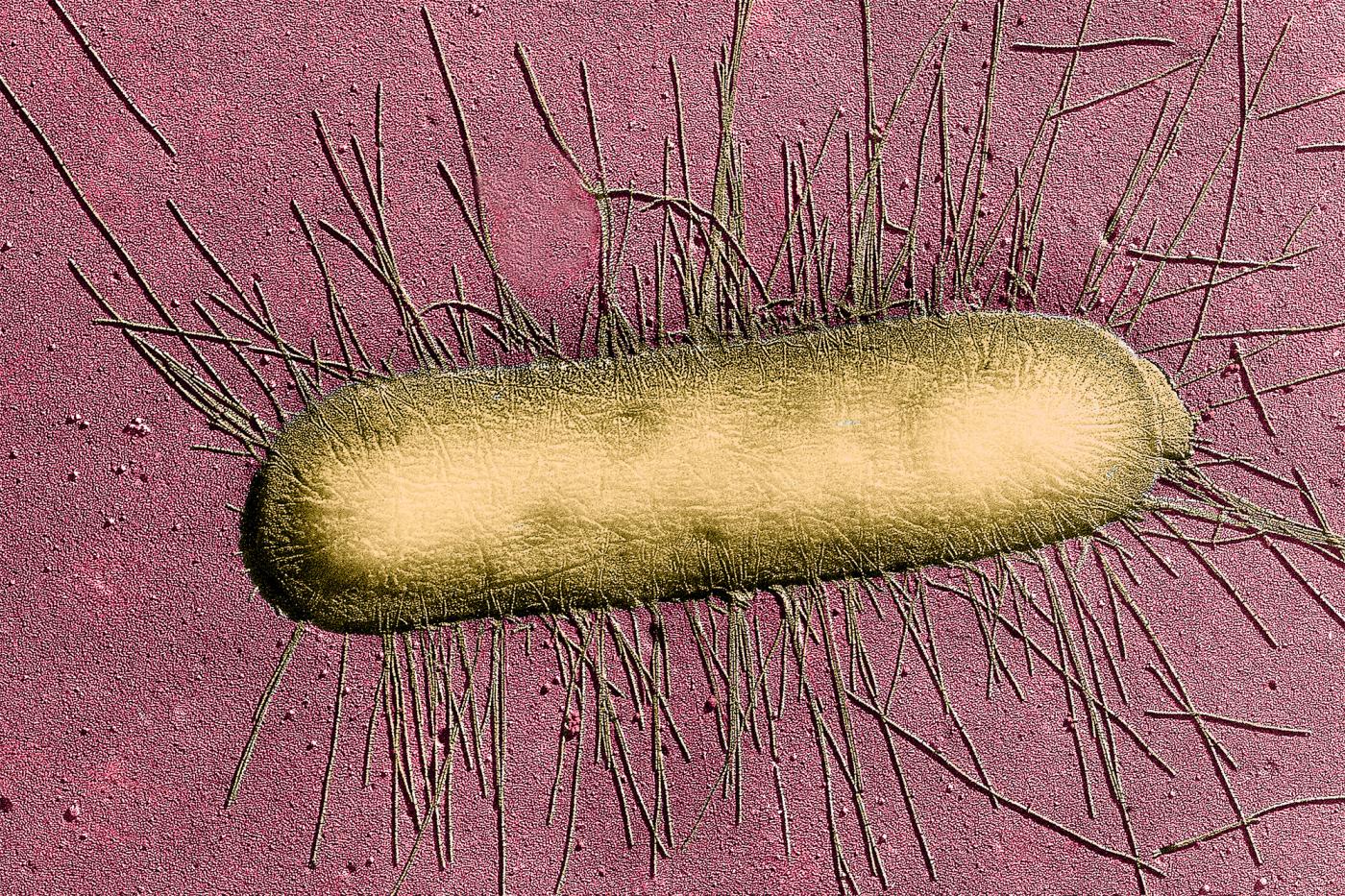
Each year in Europe, 400,000 people – 158,000 of them in France – are infected by bacteria that are multi-resistant to antibiotics.
“The Geopolitics of the Mosquito” - Go further with our experts!
After investigating cotton, water and paper, the Institut Pasteur’s ambassador, Erik Orsenna, has turned his attention to mosquitoes in his new book, Géopolitique du moustique (The Geopolitics of the Mosquito). In this report we look more closely at the efforts of the Institut Pasteur scientists to understand mosquitoes and the diseases they transmit, which are known as vector-borne diseases. We also take the opportunity to feature a few extracts from our ambassador’s book.

When they buzz around our ears at night, they're not merely disturbing us – they’re telling a story: they're giving us their take on globalization [...]
Erik Orsenna in his book, Géopolitique du moustique, Petit précis de mondialisation IV (The Geopolitics of the Mosquito: a Brief Summary of Globalization IV), published by Fayard, available in bookshops in April, 2017.
Infection-related cancer
More than one in six cases of cancer worldwide are caused by infection. In total, some 2.2 million new cancer cases every year are believed to be the result of infection by a pathogenic agent. Eight viruses, one bacterium and three parasites have been classified as group 1 carcinogens (known to be carcinogenic to humans) by the International Agency for Research on Cancer, a division of the World Health Organization.
These include the hepatitis B and hepatitis C viruses, which can lead to chronic infections and liver cancer and claim more than a million lives each year. The Helicobacter pylori bacterium is responsible for the majority of cases of stomach cancer, the second leading cause of cancer death worldwide. Infection by some forms of papillomavirus is associated with cervical cancer, the fourth leading cause of cancer death in women. HIV is also classified as a carcinogen, since the immunodeficiency it induces increases the risk of cancer.
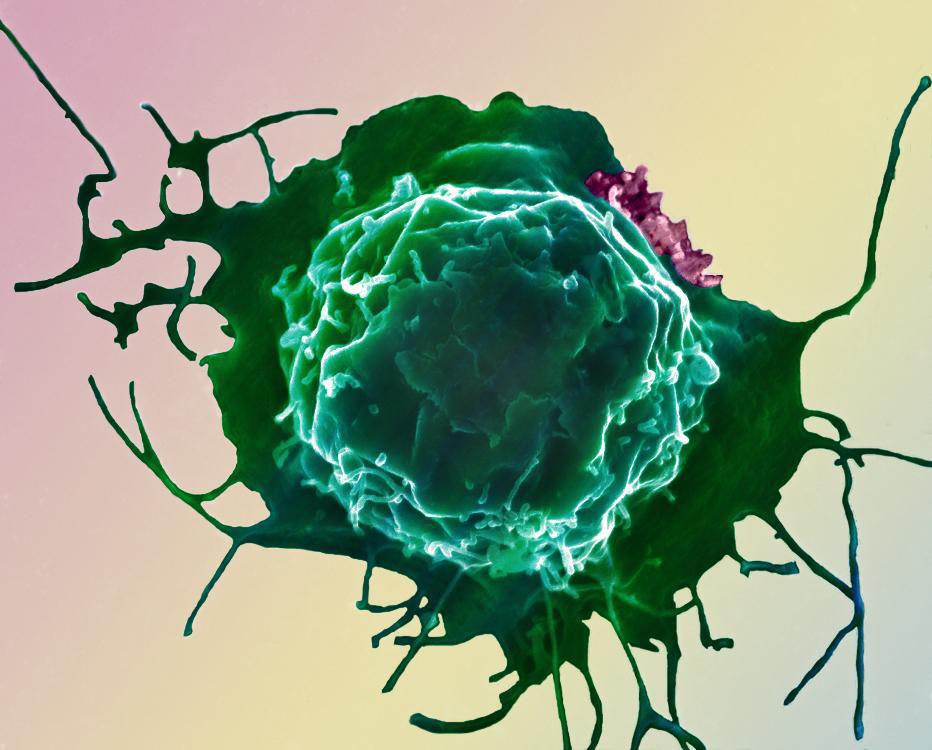
In western countries, estimates suggest that fewer than 10% of cancer cases are caused by infection. In developing countries, however, the figure is much higher, in the region of 30%.
A beautiful book on the Institut Pasteur and a tribute to Simone Veil
Book release: “Institut Pasteur: Today's Research, Tomorrow's Medicine”
As the Institut Pasteur enters the 130th year of its existence (the anniversary will be celebrated on November 14, 2018), the book Institut Pasteur: Today's Research, Tomorrow's Medicine – is being released. This illustrated volume – accessible to readers of all ages and backgrounds – describes the major challenges and medical issues facing the Institut Pasteur and the Institut Pasteur International Network. It pays tribute to the men and women who – inspired by the humanist ideals of Louis Pasteur – work tirelessly, on a daily basis for human health and medical progress.

Thank you, Simone Veil!
Simone Veil, a French politician, died in Paris on June 30, 2017. In 1974, she was appointed Minister of Health, and worked on the law decriminalizing abortion. She also contributed indispensable financial support to the Institut Pasteur in 1975. The Institut Pasteur would like to pay tribute to her.
The Institut Pasteur owes much of what (and where) it is today to Simone Veil.

Trending topics: vaccines, a case of rabies in France, Dengue in Côte d'Ivoire
Why vaccines are essential
In July 2017, health professionals rallied in support of the French government's plan to make 11 vaccines compulsory for children. Prof. Philippe Sansonetti, a microbiologist and infectious disease specialist at the Institut Pasteur, signed the petition launched by the French Society of Pediatricians, together with colleagues and infancy specialists. He reminds us that vaccines are effective against potentially severe, often contagious diseases. He believes that the dangerously insufficient levels of vaccination coverage in France justify making some vaccinations compulsory. But he emphasizes that this measure should be backed up by a major information campaign.


Prof. Philippe Sansonetti, head of Molecular Microbial Pathogenesis Unit.
© William Beaucardet
It's important to be vaccinated to protect yourself personally, of course, but above all it's about protecting others, especially those who are vulnerable: children, the elderly, pregnant women, and immunodeficient people [...]. That's why I wouldn't say I'm especially "pro-vaccine" but I'm definitely "pro-children's health"!
Explanation and advice following the case of rabies in France
The unfortunate and exceptional case of rabies in France (in October, 2017) highlights the need to inquire beforehand about potential risks when traveling abroad. The disease is always fatal once the first clinical signs have appeared and is responsible for 59,000 deaths worldwide annually. There is currently no effective treatment after the onset of clinical signs.
When traveling to areas of the world where rabies is rife, contact with animals, particularly dogs, should be avoided. However, in the event of exposure, an anti-rabies center should be contacted (vaccine injections, if needed).

The Institut Pasteur in Côte d'Ivoire diagnoses a dengue epidemic in Abidjan
A dengue epidemic has been declared since April 2017 in Côte d'Ivoire in Abidjan in the sanitary district of Cocody-Bingerville. The Institut Pasteur in Côte d'Ivoire confirmed the human cases but also analyzed by PCR the batches of mosquitoes caught in the city of Abidjan revealing the presence of dengue virus types 2 and 3 (see our disease fact sheet about Dengue).
Diseases, or disease-carrying animals, that concern all of us
Phage therapy effective in Crohn's disease
Pathogenic bacteria known as AIEC, which bind to the intestinal mucosa, are frequently found in Crohn's disease patients. Scientists at the Institut Pasteur, in collaboration with scientists from the University of Clermont Auvergne and the Lille Faculty of Pharmaceutical and Biological Sciences, administered a cocktail of bacteriophages orally to murine models for the disease. This led to a reduction in the concentration of AIEC bacteria and to the disappearance of some symptoms, offering new hope for the future treatment of Crohn's disease patients.
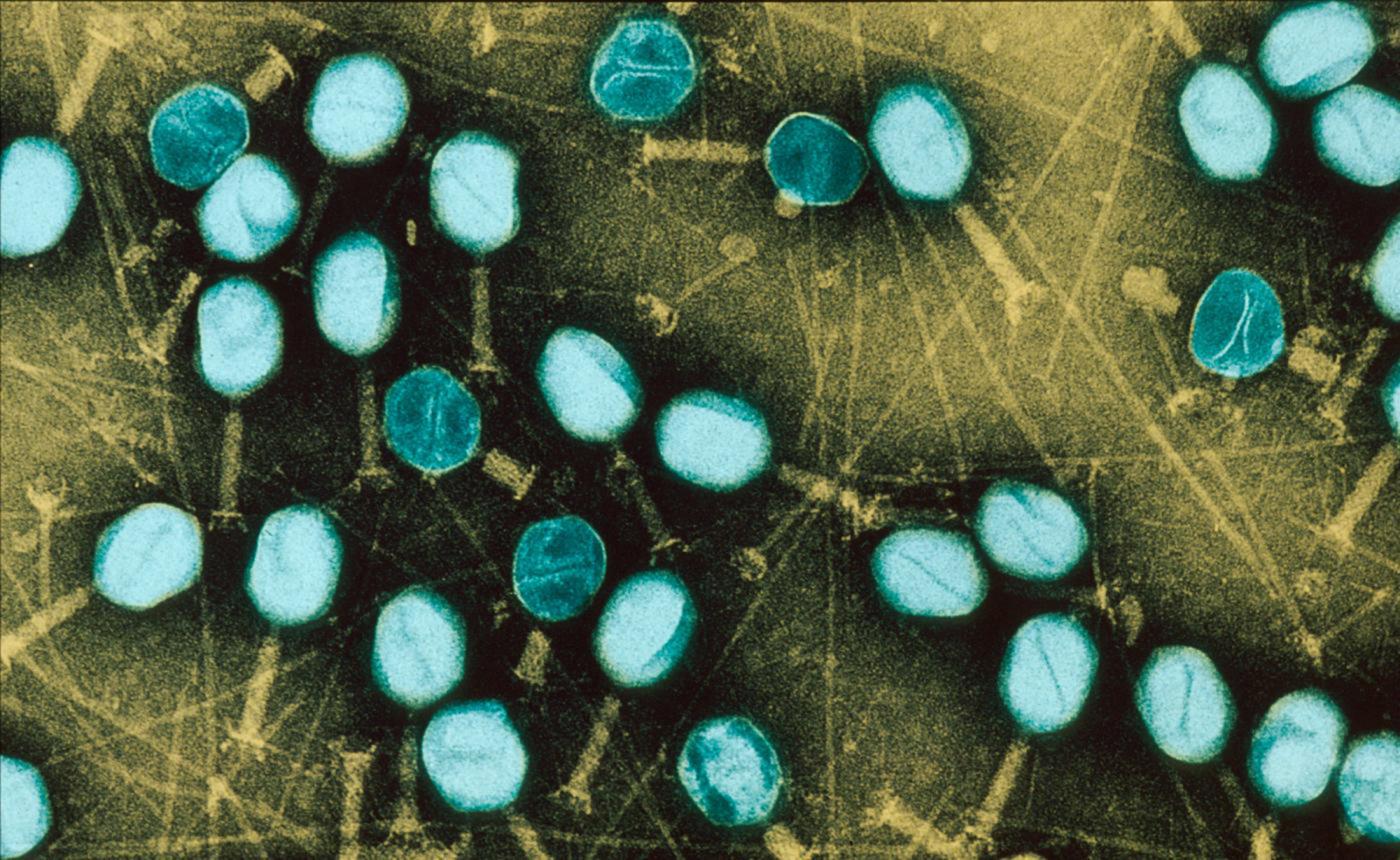
What is the "tiger mosquito" (Aedes albopictus)?
Aedes albopictus (Skuse, 1894), also known as the "tiger mosquito", originated in Southeast Asia. It can be recognized by the central line of white scales on its thorax. This mosquito, common in its native areas (which include temperate Asia, China, Japan and Korea), was first described in the Indian city of Kolkata.
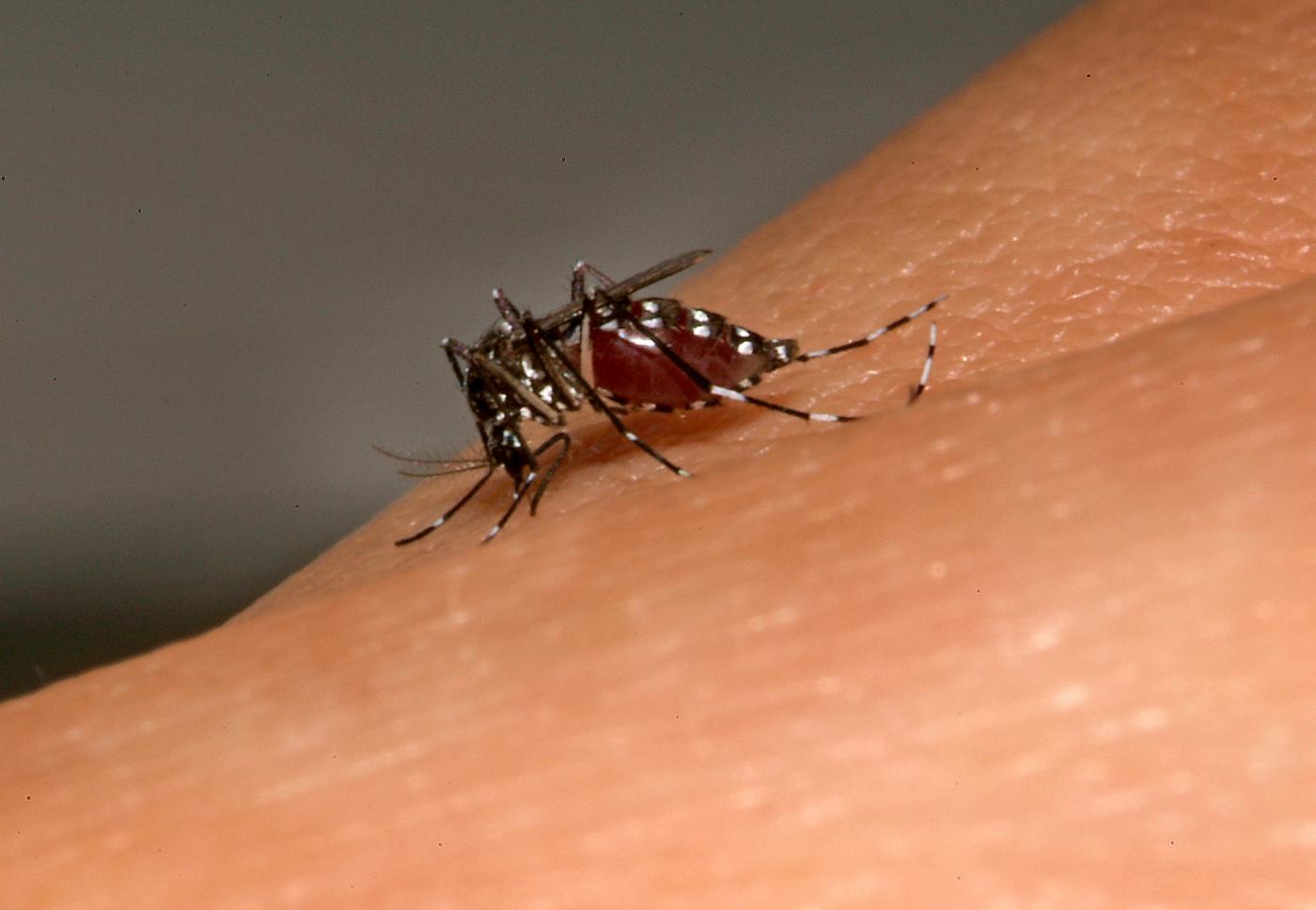
Rabies in Cambodia
As part of his trip round the world to gain a better understanding of mosquitoes and write his book “The Geopolitics of the Mosquito” - Go further with our experts!, published by Fayard, Erik Orsenna made a stop in Cambodia. He visited the Institut Pasteur in Phnom Penh. This was a chance for him to discover that, in addition to vector-borne diseases, rabies is a neglected disease that is still rife in this country. The Cambodian population suffers nearly 600,000 severe dog bites each year. The following is a review of rabies in Cambodia by Didier Fontenille, who heads up this institute in the Institut Pasteur International Network.

AIDS: NK cells in the innate immune system control viral replication in the lymph nodes
Scientists from the Institut Pasteur have proved that NK cells ("natural killer" cells in the immune system) migrate to lymphoid follicles, where they control replication of SIV (simian immunodeficiency virus). This new, previously undiscovered function of NK cells was revealed following research into SIV infection in African green monkeys. It raises the prospect of one day being able to control HIV in humans that have stopped treatment, a phenomenon that is currently only seen very rarely in a handful of patients known as post-treatment controllers. This finding also suggests that NK cells in the lymph nodes may play a role during other viral infections – or even in vaccinations.

Lyme disease – chipmunks may affect tick infection but the risk of transmission is more complex
Lyme disease is caused by bacteria transmitted by the bite of an infected tick of the Ixodes genus. Researchers from the Institut Pasteur have investigated tick infection when Siberian chipmunks are present, as these rodents are thought to be a reservoir for the bacteria. This pet, which was popular in the 1970s, was introduced to some forests where it now thrives, like in Sénart Forest, south-east of Paris. The research has confirmed that these chipmunks were responsible for an increase in tick infection. But there are fewer ticks where the chipmunks are found. Why is this?



